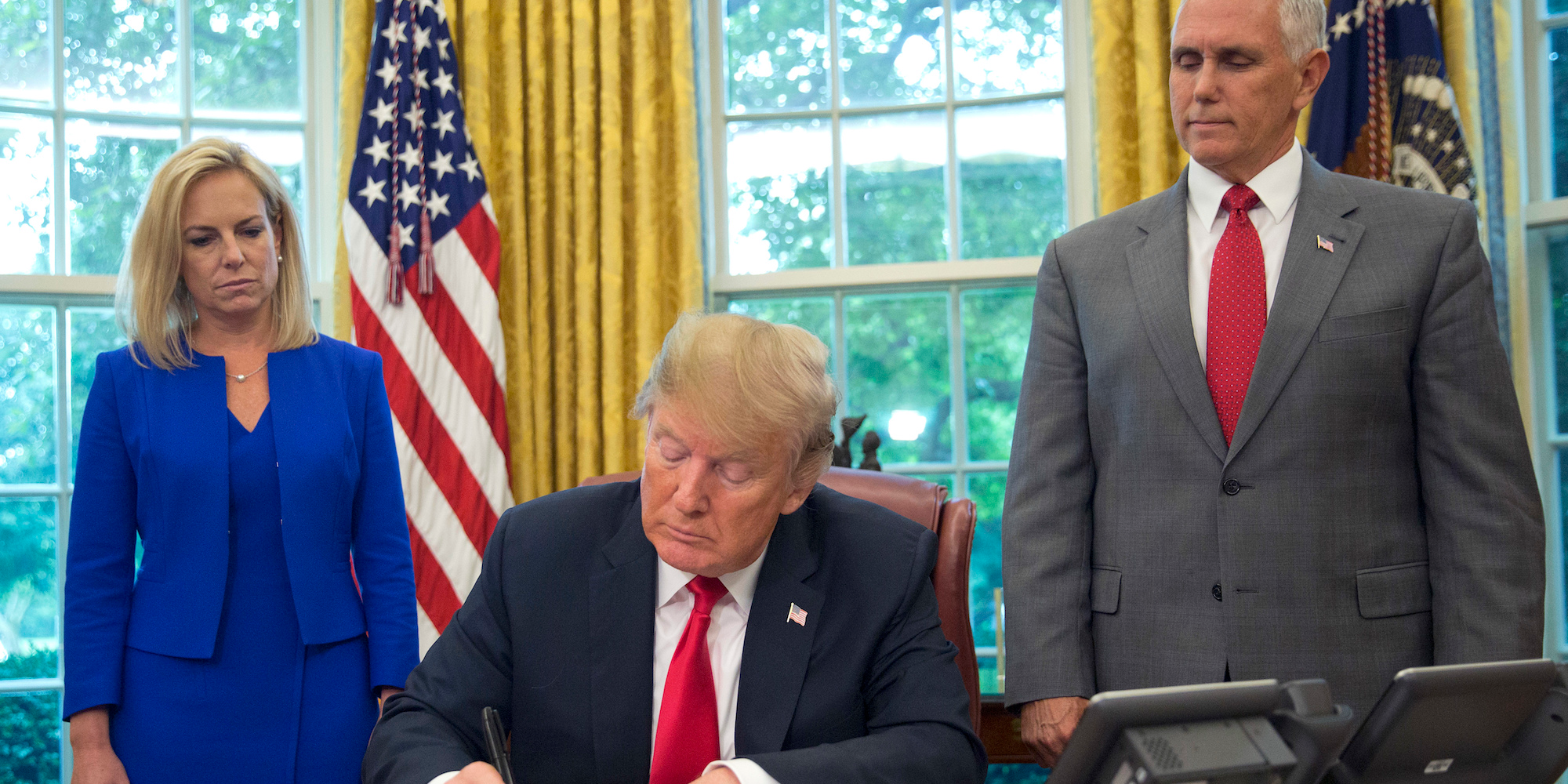- President Donald Trump on Wednesday signed an executive order he said will end the separation of migrant families at the US-Mexico border.
- But immigration lawyers are concerned by the vague language of the order and warn it leaves a great deal of room for interpretation.
- In particular, lawyers are concerned with this line: “It is … the policy of this Administration to maintain family unity, including by detaining alien families together where appropriate and consistent with law and available resources.”
- One lawyer said the executive order “is not a victory” when it comes to protecting the rights of migrants.
President Donald Trump on Wednesday signed an executive order he said will end the separation of migrant families at the US-Mexico border. But immigration lawyers and experts are concerned by the vague language of the order and warn it leaves significant space for interpretation.
In particular, lawyers are concerned with this line: “It is … the policy of this Administration to maintain family unity, including by detaining alien families together where appropriate and consistent with law and available resources.”
Greg Siskind, an immigration lawyer based in Memphis, Tennessee, told Business Insider that the wording grants US Customs and Border Protection the “option” to “continue with family separation.”
“They didn’t have to use that language. They could’ve been very clear family separation is not the policy of the US,” Siskind added. “It all seems designed to jail people who shouldn’t be jailed.”
Siskind also expressed concern about recent reports that asylum seekers have been turned away at the border.
"We shouldn't be in this situation anyways if we are allowing people to apply for asylum through proper channels," he said.
Matthew Kolken, an immigration attorney in Buffalo, New York, expressed similar sentiments.
"This executive order is not a victory," Kolken said. Pointing to the language of the order, Kolken warned officials are "going to define what's 'appropriate,' and that leads to a tremendous amount of subjectivity."
Kolken said it's concerning that the executive order calls for Attorney General Jeff Sessions to file a petition with the US District Court for the Central District of California to modify the Flores settlement.
The settlement is a 1997 legal agreement by the Clinton administration that prohibits the federal government from keeping children in immigration detention for more than 20 days, regardless of whether they are accompanied by a parent or guardian.
"The fact they're saying they want to re-open to the Flores settlement shows they're not on the path to release people so they can pursue their asylum cases," said Mana Yegani, an immigration attorney based in Houston.
She said it seems like the Trump administration is moving toward the indefinite detention of migrant families. She said she worries about the emotional damage this could have on the children who are detained.
Yegani also said an executive order wasn't necessary to begin with, given that family separations were a product of the Trump administration's "zero tolerance" policy regarding illegal border crossings and not required by any specific law.
"All [Trump] had to do is pick up the phone and call Jeff Sessions and say, 'You need to cut this out because this is inhumane and cruel,'" she said.
She said Wednesday's moves were essentially a "dog and pony show" aimed at making Trump look like "a hero."
"It gives me the indication they want appeal to their base and say, 'Even though we're not going to separate kids from their mothers we do not intend to allow illegal aliens to be released from custody,'" she added. "It's all been a big political show."
Roughly 2,000 migrant children were separated from their parents or guardians in a recent six-week period, according to figures from the Department of Homeland Security.
Trump's executive order does not end his administration's "zero tolerance" immigration policy and calls on Congress to enact legislation to address the issue.
Yegani noted that the order doesn't cover what will happen to the children and families who've already been detained. "
There's been no talk about how these kids will be reunited" with their families, she said. "There's some parents who've already been deported."

